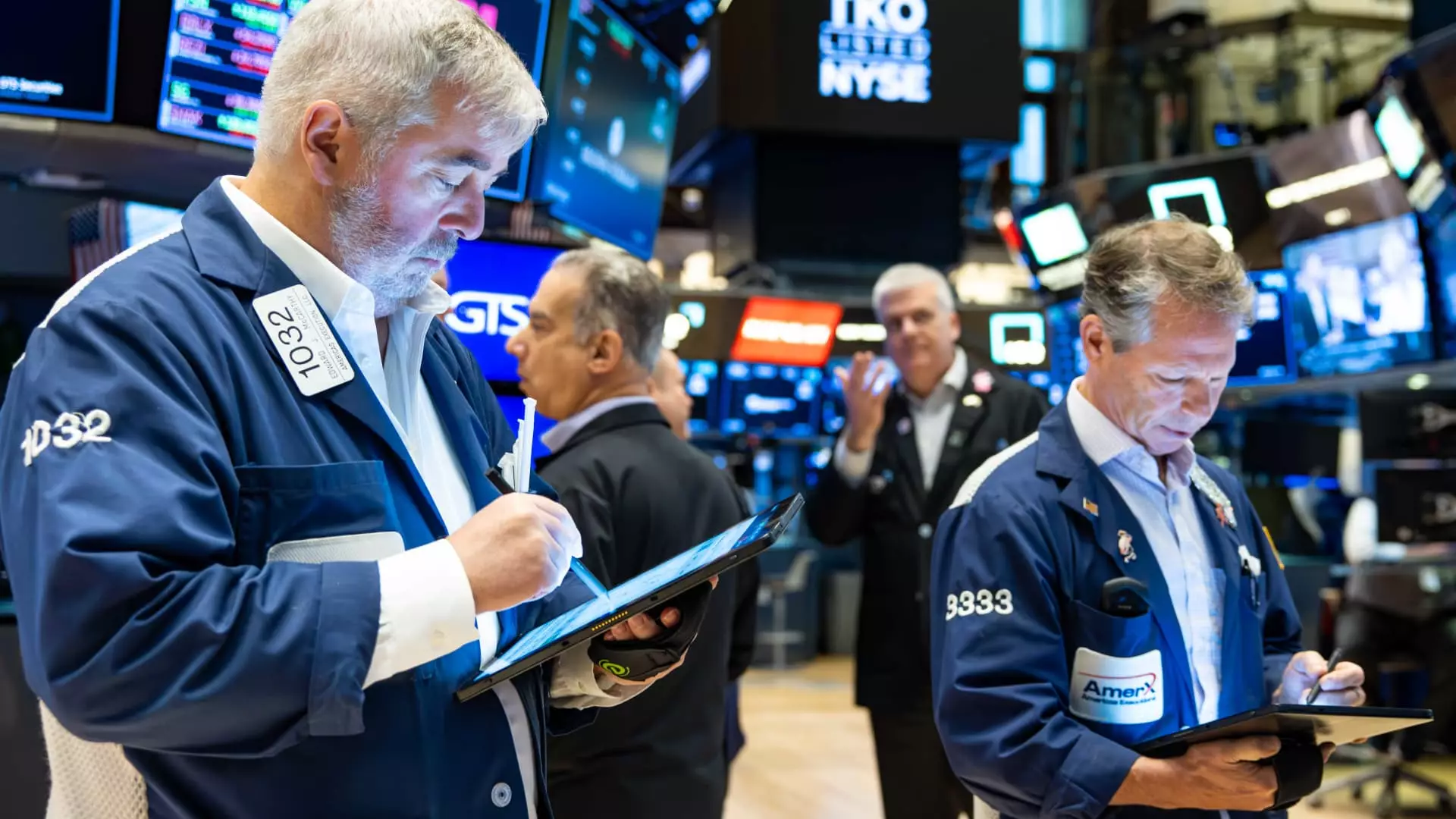The CNBC Investing Club, hosted by Jim Cramer, serves as a vital resource for investors aiming to navigate the complexities of the stock market. During the livestream “Morning Meeting” on Tuesday, key developments were highlighted amid a backdrop of new economic policies proposed by President-elect Donald Trump. The most discussed topics revolved around the potential impacts of tariffs on trade relationships with Canada, Mexico, and China. As a consequence, the S&P 500 and Nasdaq Composite indices saw slight upticks, while the Dow Jones Industrial Average recorded a minor decline. These fluctuations set the tone for market activity ahead of the Thanksgiving holiday, a period traditionally characterized by unique trading patterns and volume shifts.
Investment Strategies in Holiday Weeks
Jim Cramer typically advocates for a strategy of acquiring shares on Wednesday and liquidating them during the market’s shortened session on Friday. However, in light of current events and potential volatility stemming from President-elect Trump’s communications, Cramer advised investors to remain cautious. He emphasized the importance of avoiding seasonal trading patterns, suggesting instead that a disciplined focus on fundamentally strong stocks should guide investment decisions. This recommendation underscores the unpredictable nature of market responses to political news, encouraging investors to prioritize resilience over impulsivity.
Two notable underperformers on Tuesday were Best Buy and Stanley Black & Decker. Best Buy’s shares plummeted by 8% following an underwhelming earnings report, prompting the Club to prepare an in-depth analysis of its financial standing. Similarly, shares in Stanley Black & Decker saw a decline of 3.5%. Investors are closely assessing the implications of future tariff increases on the company’s operations, particularly in China. Despite these setbacks, the Club’s stance remains favorable towards Stanley Black & Decker, indicating a long-term perspective amidst market fluctuations.
In contrast, Wells Fargo emerged as a point of optimism as its stock rose by 0.6%. The increase stemmed from a report suggesting the potential lifting of the bank’s $1.95 trillion asset cap by the first half of 2025. Although these assertions remain unverified by Wells Fargo, the prospect of this cap being removed represents a significant milestone in the bank’s recovery narrative, which has faced substantial scrutiny since its imposition by the Federal Reserve in 2018 due to a history of misconduct. Cramer urged caution, advising investors to refrain from buying immediately, but expressed hope for a favorable investment opportunity if the stock experiences a dip.
Morgan Stanley, on the other hand, faced a turbulent day in the market as its stock dropped over 2%. This downturn was attributed to a worrying report concerning risk management practices within its wealth management division, revealed by the Wall Street Journal. Additionally, HSBC downgraded its rating on Morgan Stanley from “buy” to “hold,” citing less favorable risk-reward dynamics. Cramer warned against buying into Morgan Stanley shares at their current levels, urging a more calculated approach that requires significant reconsideration before future investments.
The CNBC Investing Club consistently provides valuable insights into market trends and stock performance, especially during volatile periods marked by significant political decisions. Jim Cramer’s advice encourages investors to remain grounded and strategic rather than succumbing to the fluctuations often triggered by external news. As we approach the Thanksgiving holiday, Cramer’s perspective serves as a reminder of the importance of discipline in trading and the necessity of staying informed about broader economic impacts. Investors are encouraged to take a long-term view and focus on companies that demonstrate stability and growth potential in an ever-changing market landscape. In this climate of uncertainty, the guidance provided by Cramer and the Club can be instrumental in driving informed investment choices.

Leave a Reply